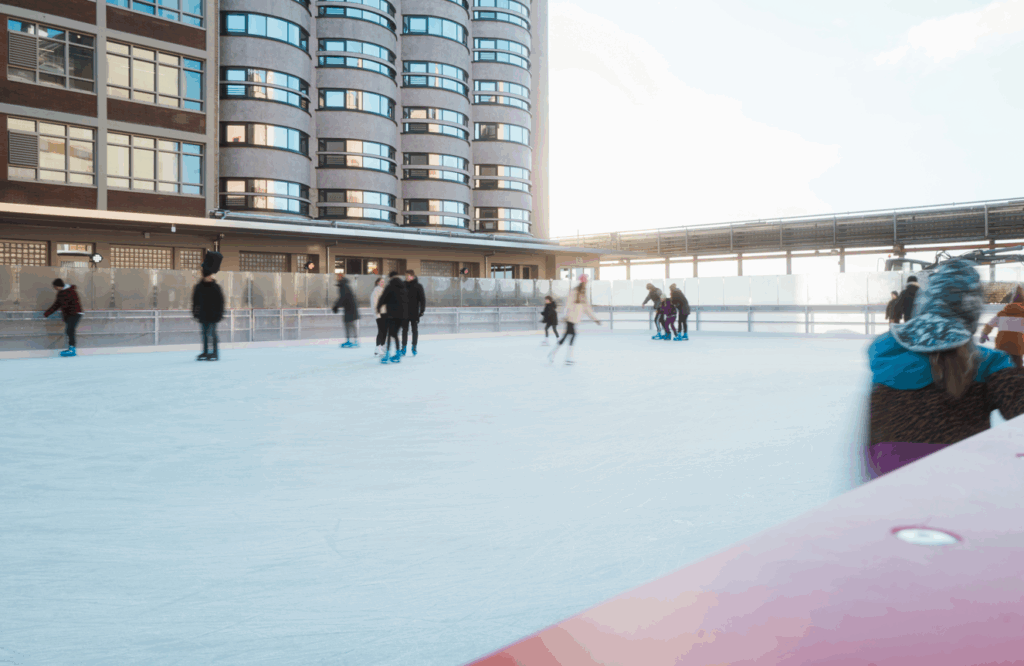In north-west Germany, the town of Bremen is crossed by the picturesque river Weser. Now this historic waterway is providing heating for a district network thanks to a large heat pump.
The 5 MW pump extracts thermal energy from the river, even at temperatures as low as 0.1°C.
It’s a pretty innovative 5 MW heat pump concept that uses river water as heat source. Also, there is a surface cooling water reservoir functioning as another heat source in the summer that is being used as a public ice rink in the winter.
The system, developed by Stadt Energy Speicher GmbH, uses a vacuum evaporation process developed in collaboration with ILK Dresden. The resulting thermal energy is used to power the large heat pump, while the by-product – a slush-like ice mixture – is returned to the river in winter.
In summer, the vacuum-based liquid ice generator, in combination with a 150 m³ slush ice tank, functions as a cold storage system, enabling buildings to be cooled using electricity from photovoltaic (PV) systems.
The system also includes a surface cooling water reservoir, which in summer serves as an additional heat source for the heat pump.
In winter, the surface is frozen and becomes a public ice rink. The waste heat produced during the ice-making process is fed into the heating network via the return line.
Flexible use of electricity and load shifting are enabled via a 600 m³ high-capacity thermal storage tank, a power-to-heat module (1 MW electric), and an intelligent control system.
The whole thing covers 63,000 m² of residential and 55,000 m² of commercial floor area.

